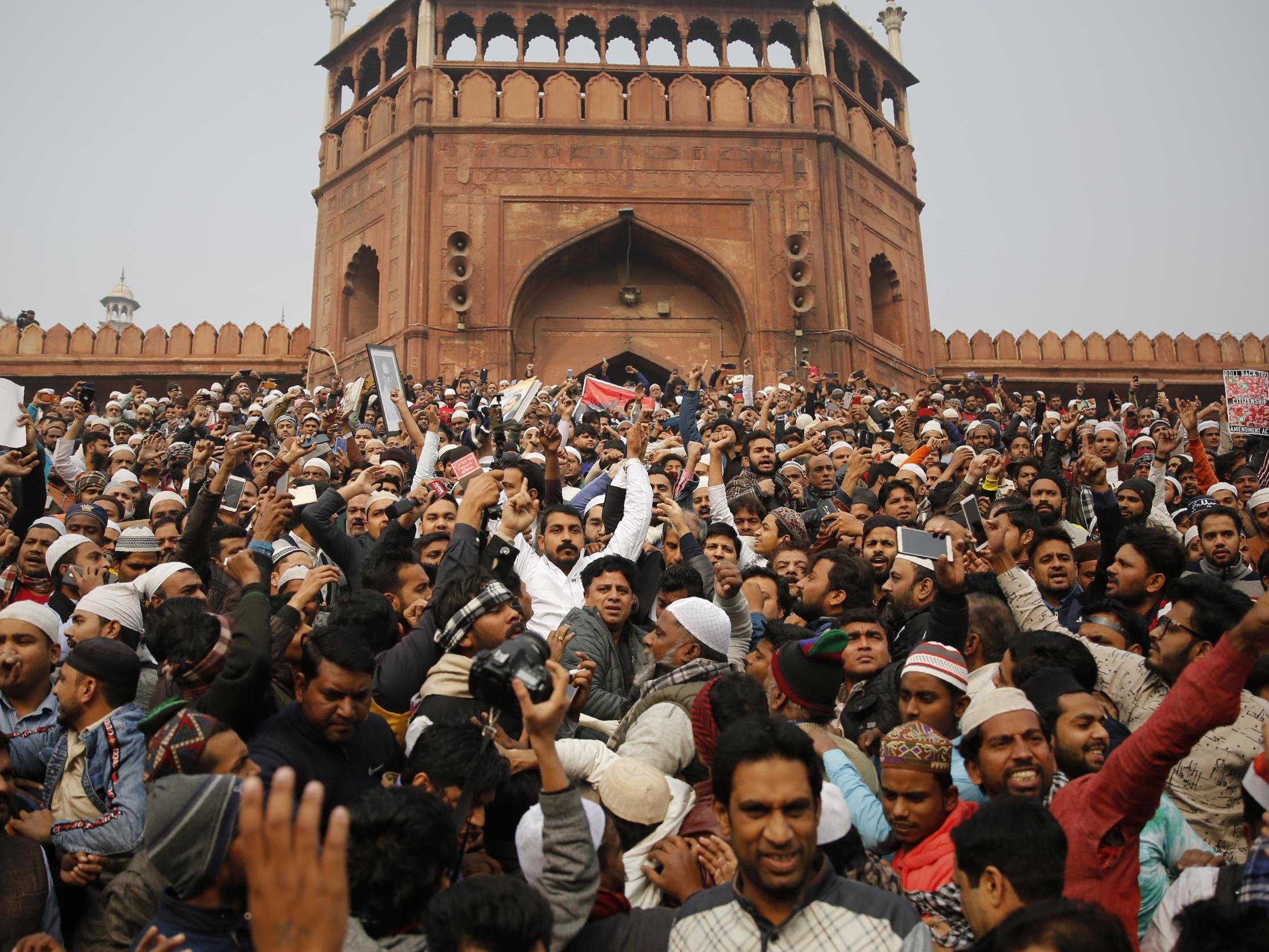India protests: 14 people dead and 4,000 detained as police cut internet in bid to quell growing demonstrations
Victims include two shot by gunman firing from rooftop

Your support helps us to tell the story
From reproductive rights to climate change to Big Tech, The Independent is on the ground when the story is developing. Whether it's investigating the financials of Elon Musk's pro-Trump PAC or producing our latest documentary, 'The A Word', which shines a light on the American women fighting for reproductive rights, we know how important it is to parse out the facts from the messaging.
At such a critical moment in US history, we need reporters on the ground. Your donation allows us to keep sending journalists to speak to both sides of the story.
The Independent is trusted by Americans across the entire political spectrum. And unlike many other quality news outlets, we choose not to lock Americans out of our reporting and analysis with paywalls. We believe quality journalism should be available to everyone, paid for by those who can afford it.
Your support makes all the difference.Police in India banned public gatherings and continued clampdowns in Muslim-majority regions for a third day on Friday amid protests against a controversial citizenship law that has seen 14 people killed over the last three days and more than 4,000 detained. Six people died yesterday, police said.
Police in India banned public gatherings and continued clampdowns in Muslim-majority regions for a third day amid protests against a controversial citizenship law that saw 14 people killed and more than 4,000 detained.
Internet services were cut as the government attempted to temper unrest across the country, with thousands amassing on the steps of New Delhi’s Jama Masjid, one of the largest mosques in the country.
Waving Indian flags and shouting anti-government slogans, protesters accused the government of threatening the nation’s secular democracy and marginalising its sizeable Muslim minority.
Similarly large protests took place outside the city’s Jamia Millia Islamia University, the site of violent clashes as students collected signatures demanding the law be scrapped. Students have since accused police of excessive force in the incident, with dozens being seriously injured in the ensuing carnage.
In response to growing unrest authorities erected roadblocks and turned areas around mosques in the Indian capital, Lucknow and other areas frequented by Muslims into security fortresses to prevent widespread demonstrations after Friday prayers.
Elsewhere violence erupted in several towns in Uttar Pradesh. Police were forced to disperse activists in Muzzaffarnagar, Saharanpur, Firozabad and Gorakhpur with tear gas and batons.
In the southern city of Mangalore on Thursday night officers were seen beating at activists who has taken shelter in a hospital, kicking down the door after the members of the public had hurled rocks at them.
Meanwhile in Meerut, to the north of New Delhi, two protesters were killed when they were fired upon from a rooftop.
Officer Dinesh Rai said police had not fired on the crowds, and an investigation into their deaths were underway.
They join the death toll alongside others in Assam, Uttar Pradesh and Karnataka in protests that have spanned regions, cultures and motivations.
The unrest was sparked after the government voted to pass India’s contentious citizenship bill – put forward by Narendra Modi’s Hindu nationalist government to offer an easier path to citizenship for religious minorities in neighbouring countries.
The policy grants Indian nationality to Buddhists, Christians, Hindus, Jains, Parsis and Sikhs who fled Afghanistan, Bangladesh and Pakistan in half the time of other groups if they can argue they suffered religious discrimination in their country of origin.
Join our commenting forum
Join thought-provoking conversations, follow other Independent readers and see their replies
Comments